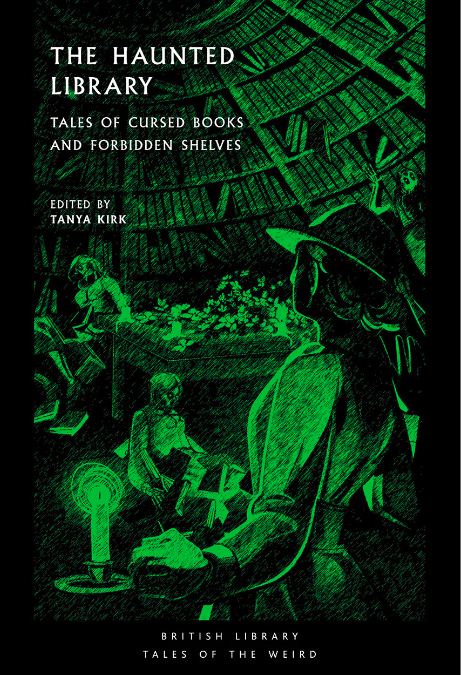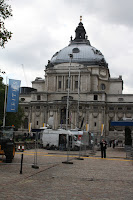.
A while ago, Fr Tim posted some clips of Organum chant, which led me down a merry road of spending money on music I can only listen to on earphones or in an otherwise empty house.
The theory is that "Old Roman Chant" represents the very ancient mode of singing employed in Rome, and which lingered on in the Papal liturgies until the Papacy moved to Avignon, at which point Gregorian Chant supplanted it completely.
Old Roman Chant provides not just a bridge to the music of the Eastern Churches, but shows their descent from the music of the Temple in Jerusalem.
Here is a flavour of what has been conjectured as the sound of the Introit of the Dawn Mass of Christmas Day in the sixth century. If you are like me, it will thrill you to imagine the link back, and to be able just about to imagine the baggage such singing brought with it. If you are like everybody else
chez Ttony, you will marvel at the fact that people will pay money to hear this. "The closest this will get to my car is the front tyre", as I was told.
You decide.
The mystery of the
Incarnation of the Word lies at the heart of the Christian faith. It is
celebrated just after the longest night of the year, when (in the northern
hemisphere) the days begin to lengthen until we reach the summer solstice,
which is associated with the figure of John the Baptist. To celebrate this
moment, the Church deploys an exceptional - virtually uninterrupted - liturgical
cycle in which the usual Offices are interspersed with four Masses.
The First Mass begins
just after the third hour, that is to say when the sun is midway between its
zenith and twilight. Then, amid the final glimmers of daylight, First Vespers
of the Nativity are sung. When darkness has fallen, Compline celebrates the
first hour of night. After a short pause begins the great Office of Matins,
whose solemn ceremonial lasts more than three hours, until the night reaches
its epicentre, at this point Midnight Mass is celebrated. As the time of
darkness draws to an end, an hour before the first gleams of dawn, begins the
Office of Lauds, the two last chants of which - the hymn and the Gospel
canticle - must correspond with the arrival of light in the sanctuary. Then the
Office of Prime, which lasts only some twenty minutes, introduces Dawn Mass. A
short break, and, when the sun is midway between the horizon and its zenith -
that is, at the third hour - the Office of Terce introduces the fourth Mass.
Between the commencement of the cycle - after the ninth hour on 24 December-
and the beginning of the last Mass - after the third hour on 25 December - six
hours of daylight and twelve hours of night have elapsed. This geometry of
time, which leaves our contemporaries indifferent, constituted for our
forefathers the foundation of the liturgical act.
The musical anthology presented here
traverses some of the great moments of these four Masses of the Nativity. The
music is that of the ancient chant of the Church of Rome, one of the oldest
repertories of which traces have remained in the collective memory of mankind.
Up to the thirteenth century this repertory accompanied the papal liturgy. It
disappeared with the installation of the papacy in Avignon, and sank into
oblivion. Rediscovered in the early twentieth century, it aroused little
enthusiasm among musicians, and only began to be studied properly first from
the liturgical, then from the musicological perspective, in the second half of
the century. At this time, to distinguish it from Gregorian chant, it was named
'Old Roman chant'. A major debate took place in the Gregorianist milieu in an
attempt to understand why, when since the ninth century, the whole of Western
Europe had been using books of Gregorian chant in which the melodic forms are
almost identical, the Roman chant books give a different version from the
Gregorian chant, often with much more highly developed ornamentation. After a
century of research, it would appear today that Old Roman chant presents the
Roman tradition in a state closer to its origins. The musical notation utilised
is extremely precious, for all the ornaments are written out, whereas in the
notation of Gregorian chant ornaments are merely suggested.
A short historical summary
At the end of the eighth century, the
Frankish kings began to become conscious of their role in protecting the
papacy. Pippin the Short, followed by his son Charlemagne, realised that the
importation of the Roman liturgy would be a fantastic tool for establishing
their legitimacy and culturally unifying a vast and disparate empire. Moreover,
in the eyes of the Carolingians, the chant of Rome seemed to be the best
preserved musical monument of the Graeco-Latin culture which they wished to
revive at all costs. Conscious of the disaster that the loss of the knowledge
of the ancients would represent, Charlemagne surrounded himself with scholars
and artists who collected what they could of the artistic and scientific
remains of Antiquity and attempted to breathe new life into them. The music of
Rome was one of the key implements of this Renaissance. The musical terminology
elaborated in Carolingian learned circles borrowed numerous terms from Greek
theory, which the Franks discovered through the intermediary of the Romans.
Thus the Carolingians developed a sensation of being a living part of a certain
form of culture whose expression, according to ancient tradition, was Greek. As
a result they acquired a degree of legitimacy which buttressed them in their
attempts to forge relations with Constantinople.
However, it was
necessary to adapt the Roman liturgy to the new liturgical preoccupations which
took shape in the course of the ninth century. Successive reforms, and a
certain crossbreeding with the old Gallican traditions, resulted in a
transformation of the former Roman chant. From this emerged a new dialect known
today as 'Gregorian chant'. This chant spread through the Western empire and
returned to Rome around the end of the eleventh century, gradually taking the
place of the older repertoire from which it was derived. Old Roman chant, whose
origins dated back to before the sixth century, continued to exalt the papal
liturgy at St Peter's and in the great Roman basilicas until the end of the
thirteenth century. The installation of the papacy in Avignon dealt it a fatal
blow, and all trace of it was lost in the early fourteenth centurv, when it
ended up being supplanted by the chant now called 'Gregorian'.
Like Milanese and
Beneventan chant, the other two older Latin repertories, Old Roman
chant is situated at the turning point between the music of Graeco-Latin
antiquity and that of the Middle Ages. It testifies to a time when the Eastern
and Western Churches communed in cultural and spiritual unity.
This programme illustrates the different musical
genres in use in the Roman Mass. The chants known as 'Propers' are specific to
a particular liturgical time. These are the Introit, the Gradual, the Alleluia,
the Offertory, and the Communion. To these are added the chants known as 'Ordinary',
here a Kyrie. The art of reading is illustrated by a Gospel sung in the manner
still in force in the Eastern churches, whose tetrachordal musical structure is
characteristic of ancient Greek music.
For this recording we have used the oldest
Roman chant manuscript. It is dated 1071, and is today preserved in the
extraordinary collection of the Fondation Martin Bodmcr at Cologny (Geneva).
One must imagine this
music in the context of the great Roman liturgies of the first millennium. The
glimmer of the candles which makes the colours of the mosaics flicker on the
walls, ceiling and the floor long of the basilicas, the movements and the
static positions of the officiants the long periods of silence. This music is
founded on the art of cantillation, that is to say the act of proclamation and
transmission of the sacred texts. On the most solemn feast days, the words were
drawn out to extreme lengths so that the faithful might better absorb the
meaning they convey. Through the magic of music, sung texts become icons. Time
is deployed with sovereign slowness in order to give contemplation all the
space it needs and allow consciousness genuinely to settle into the encounter
with the Word. The use of the drone, the note held by the lower voices - a form
of polyphonic chant then called basilical organum - confers on the sound a
hieratic immanence in which time and space are united in a single vibrant
truth.
Old Roman chant
occupies a central position in the history of music. It is the keystone which
gives meaning and coherence to what ought to be the musical consciousness of
Western Europe and far beyond. For, looking back to the period before, it gives
us the key to the filiation between the chant of the temple of Jerusalem and
the heritage of Greek music. Looking forward in time, it enables us to follow
and understand the treasures of Koranic cantillation. Outside certain extremely
restricted musicological circles, this repertory is today unknown to musicians,
ecclesiastics, and the general public. Yet it offers us
the oldest version of Graeco-Latin music of Late Antiquity, and represents the
missing link between Byzantine, Coptic, Armenian, and Syrian chant, Arab music,
and Western music.
Marcel
Peres









































































